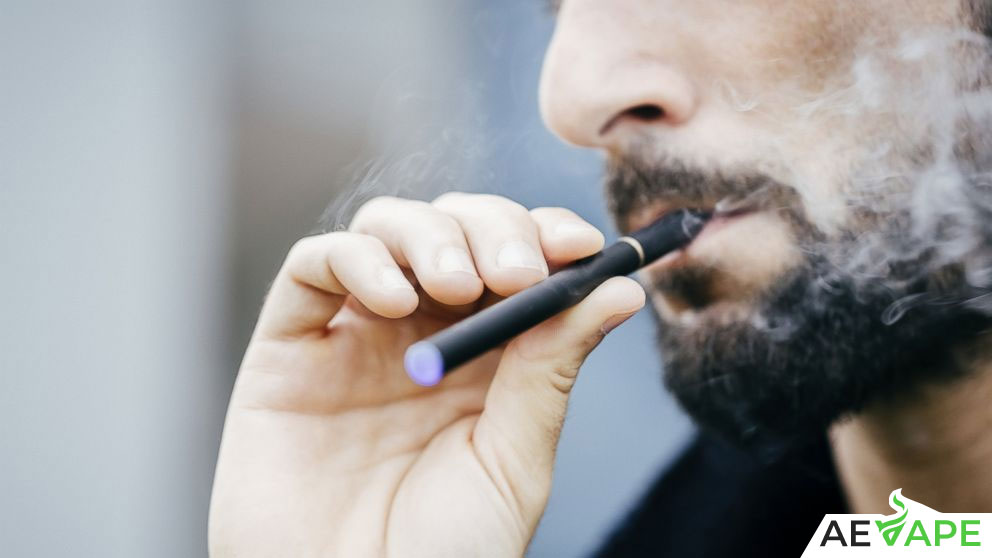In recent days, the news about the negative effects of e-cigarettes blew up in the media. Is this true? Let’s get to the bottom of it.
Where it all started: in January 2018, a study was published by the New York University School of Medicine. It talks about the possible detrimental effects of ESDN (electronic nicotine delivery systems, also vape or e-cigarette) on humans. When you smoke regular cigarettes into the body nitrosamines – tobacco-specific carcinogenic substances that are byproducts of tobacco smoldering and can be synthesized by burning nicotine. They cause severe DNA mutations that form cancer cells. In e-cigarettes, nicotine is not burned and is delivered to the body through an aerosol that appears when the liquid evaporates. In their study, the scientists did not aim to detect nitrosamines in the nicotine in the ESDN. The scientists wanted to find changes in DNA caused by carcinogens similar to those that come from using regular cigarettes.
In the study, several groups of mice were formed, one of which was exposed to vapor from e-cigarette liquid with a nicotine concentration of 10 mg/ml for 12 weeks, 3 hours a day.
In this study, several groups of mice were formed, one of which was exposed to vapor from e-cigarette liquid with a nicotine concentration of 10 mg/ml for 12 weeks, 3 hours per day.
In this case, the nicotine concentration for the first group of rodents is equivalent to that of a human vaping for 10 years. The second group of rodents was subjected to a similar treatment, but a liquid without nicotine was used. As a result, scientists found DNA mutations in the lung cells and bladder epithelium of mice from the first group, while the second group showed no mutations. Also in the first case, scientists found inhibition of repair properties of specific proteins that repair DNA. The same experiment was done with human bladder and lung epithelial cells. All obtained data coincided.
From the study we can conclude: only nicotine may have a carcinogenic property in ESDN liquids, namely the possible formation of nitrosamines (not proven in the study) or their synthesis from nicotine in body cells
Despite the results of the study, it cannot be definitively stated that there are harmful side effects from the use of e-cigarettes. It must be kept in mind that the supply of nicotine to the mice via vapor was done in a very short period of time (12 weeks). Moreover, the nicotine concentration in the study was excessive. Based on this, we can say that the suppression of repair proteins in the human body will not occur because the vaporizer is very difficult to achieve such a super concentration of nicotine for such a short period of time. We would also like to note that there are no comparisons in the study with other methods of nicotine delivery, such as regular cigarettes. We assume, then, that e-cigarettes will be several times safer than regular cigarettes.
Anthony Alberg, head of the American Society of Clinical Oncology’s cancer prevention committee
Other scientists have already commented on the study at the New York University School of Medicine. For example, in an article by MedicalXpress, Anthony Alberg, head of the American Society of Clinical Oncology’s cancer prevention committee, noted many shortcomings of the study. Here are a few of them:
First, there are no data on the effects of regular cigarette smoke on the test mice.
Secondly, the direct effect of nicotine vapor from ESDN on human bladder epithelial cells is also controversial. Such a direct effect on the bladder epithelium simply does not happen in reality.
In turn, AE Vape Store Dubai supports any research on the effects of electronic nicotine delivery systems on human health and closely monitors new publications and studies. We do not position electronic cigarettes as a completely safe method of nicotine delivery, but only offer a harmless alternative to regular smoking and a way to quit the addiction.
Snowboarder, foodie, DJ, Vignelli fan and creative consultant. Operating at the sweet spot between design and sustainability to craft meaningful ideas that endure. German award-winning designer raised in Austria & currently living in New York City. Tropical swift lover.
